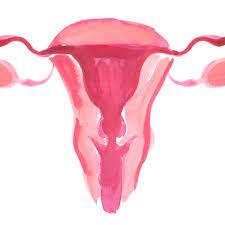There is no single ovarian cancer treatment that is effective for all patients. An oncologist specializing in treating ovarian cancer will develop a customized treatment plan for a patient’s condition. Several different approaches to treatment are required to determine the most effective one.
The earliest signs and symptoms of ovarian cancer are often similar to those of less serious conditions. However, it is common for ovarian cancer to have spread to the pelvis or abdomen when doctors discover it. A healthcare professional will recommend the best treatment based on the stage of cancer stage as well as other health concerns. In many cases, a patient will receive multiple treatments simultaneously.
Treatment Options Available For Ovarian Cancer
Surgery
The following procedures are used to remove ovarian cancer:
- The removal of one ovary through surgery: Cancers in the early stages, which have not grown beyond one ovary, may be removed surgically along with the fallopian tube. It is possible to bear children after this procedure.
- Removing both ovaries through surgery: A surgeon may remove both ovaries and both fallopian tubes if cancer is present in both ovaries, but no additional cancer is evident. However, the uterus is not affected by this procedure. Therefore, freezing eggs or embryos or eggs from a donor may still allow the patient to conceive.
- The surgical removal of the uterus and both the ovaries: If the cancer is more advanced, then this procedure is recommended. . The patient undergoes surgery to remove the ovaries, the uterus, the fallopian tubes, the nearby lymph nodes, and an abdominal fat fold.
- Advanced cancer surgery: Depending on how advanced the cancer is, the doctor might advise surgery to remove all cancer cells. They might recommend chemotherapy before or after the operation in such a case.
Chemotherapy
The purpose of chemotherapy in ovarian cancer treatment is to kill fast-growing cancerous cells in the human body. Chemotherapy drugs may be administered intravenously or orally. Following surgery, chemotherapy is sometimes administered to eliminate any cancer cells that may be left.
Certain cases may require the infusion of chemotherapy drugs into the abdominal cavity during surgery. A certain period is allowed for the drugs to dissolve before they are drained. It completes the treatment procedure.
Targeted therapy
Targeted drug therapy aims to target a particular weakness in cancer cells. Targeted drug treatments are designed to attack these weaknesses, thereby causing cancer cells to die.
Cancer cells are sent for a biopsy. These tests determine whether a particular targeted therapy is likely to be effective.
Hormone therapy
Hormone therapy is an ovarian cancer treatment method based on blocking the receptors on cancer cells affected by estrogen. Studies have shown that specific ovarian cancer cells are dependent on estrogen to grow, so inhibiting estrogen may aid in preventing cancer from spreading.
Hormone therapy could be beneficial in treating certain types of slow-growing ovarian cancer. In the event of recurrence after initial treatment, it may also be possible to undergo this procedure.
Immunotherapy
Immunotherapy is a form of medical treatment for cancer that utilizes the immune system. The body’s immune system has been shown to fail to attack cancer cells due to their ability to make proteins. It allows them to evade the body’s immune system. In Immunotherapy, this process is disrupted to eliminate cancer.
Immunotherapy could be used to treat ovarian cancer in certain circumstances.
Palliative (supportive) care
Palliative care is a specialty area of medicine aimed at reducing the symptoms and pain associated with life-threatening illnesses. Palliative care specialists provide additional support along with your existing medical care in collaboration with your family and other medical practitioners. Several aggressive treatments, including surgery and chemotherapy, may be combined with palliative care.
People with cancer may have a better quality of life and live longer if they receive palliative care along with other appropriate treatment options.
Treatment Objectives
In part, the medical team will be able to determine the best course of treatment based on overall health and the stage and spread of cancer cells. Most likely, the treatment will consist of a combination of chemotherapy, radiation, and surgery. The treatment objectives will determine the specific approach: Is the goal a cure, or are the symptoms to be managed?
In conclusion
When diagnosed with ovarian cancer, the stress on mental health and relationships can be tremendous. It is common for most cancer patients to experience anxiety, distress, and depression. Nevertheless, do not hesitate to seek assistance as and when required. It may be beneficial to consult a psychologist or a support group of cancer survivors for assistance in dealing with the complex issues associated with cancer. Involve family members or close friends in the ovarian cancer treatment process. There are several resources for cancer survivors online, including the Cancer Survivors Network. If you are unsure where to begin, consult your cancer care team.
Resource: https://europeanmagazine.net/what-is-the-most-effective-treatment-for-ovarian-cancer/
